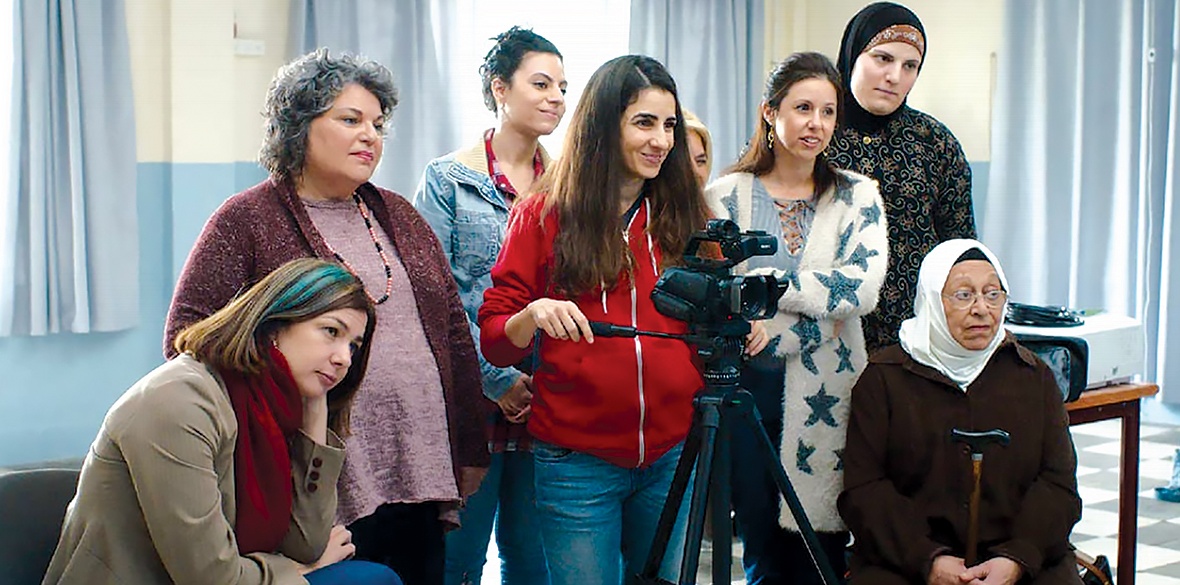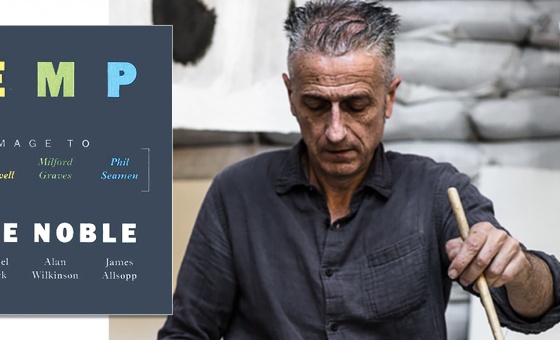This is the last article you can read this month
You can read more article this month
You can read more articles this month
Sorry your limit is up for this month
Reset on:
Please help support the Morning Star by subscribing here
AFTER two years of virtual editions, the UK Jewish Film Festival returns to cinemas in London and across the nation, from November 10-20. This will likely be the only time most of the programme’s films — including features, documentaries and shorts — are screened in Britain.
This year’s line-up includes thought-provoking films, many with great cinematography, which and overwhelmingly explore cross-cultural themes.
Moshe Rosenthal’s comedy Karaoke, is an offbeat, zany comedy, about an elderly couple in suburban Israel.
Meir and Tova, married for decades, see their life turned upside down by the arrival of a handsome, charismatic and sexually charged new neighbour, who wins them over with a karaoke party night in his penthouse apartment. Enjoyable from start to end, it dares to be as provocative as it funny.
Worth noting is Cinema Sabaya, from director Orit Fouks Rotem, the story of nine women, Arab and Jewish, who meet in a video workshop organised by their local municipality.
While they learn how to document their life, they share confidences and challenges in deep, intimate and empowering conversations.
The most profound thing they have in common is simply being a woman. This is a must-see movie.
Among the potentially most popular is film is The Forger, based on a real-life individual, Cioma Schoenhaus, played by Louis Hofmann.
It tells the story of the 21-year-old living illegally as a Jew in Berlin during World War II, who decides to go out into the open to escape deportation.
Using his talent for graphic design, he forged documents with a brush and a steady hand, saving the lives of many others. Handsomely made, this is a piece of sheer cinema; the screenplay is genuine, anchored by the young actor often very touchingly.
One of the most intriguing films to be shown is Abner Benaim’s Plaza Catedral.
It follows a Mexican architect Alicia (Ilse Salas) who lives in Panama City and forms a bond with a young boy from the street, after he knocks to on her door with gunshot wounds.
Based on true events, Benaim’s film — Panama’s Oscars entry this year — is a fascinating and heartrending portrayal of street violence and class inequality in Latin America, where children and teenagers die every day, victims of senseless violence.
Fernando Xavier De Casta, the young actor who played the lead “Chief,” was murdered months before the film’s release. In Latin America. Plaza Catedral is dedicated to the memory and shattered dreams of this lost generation.
Reckonings is award-winning film-maker Roberta Grossman’s riveting documentary which sheds new light on one of the most controversial ethical and moral issues Jewish leaders ever had to deal with, and the far-reaching implications their decision had on both Germans and Jews — the Luxembourg Agreements (between Israel and the Federal Republic of Germany on reparations following WWII and the Holocaust).
Grossman ambitious hybrid documentary has a forceful story to tell with remarkable footage.
A romantic debut by Stephane Freiss, Where The Life Begins, will be closing the festival.
A story about an ultra-Orthodox family from Aix-les-Bains (in Savoie, eastern France), who travel to a farm in southern Italy, to carry out their sacred annual mission of harvesting etrogim (ritual lemons).
While Esther, the rabbi’s daughter, is expected to marry a man she doesn’t want, she gets closer to Elio, the farm owner, who inspires her to follow her desires. A gentle yet interesting study of tradition, family and self-realisation.
Find screenings and dates at ukjewishfilm.org.









